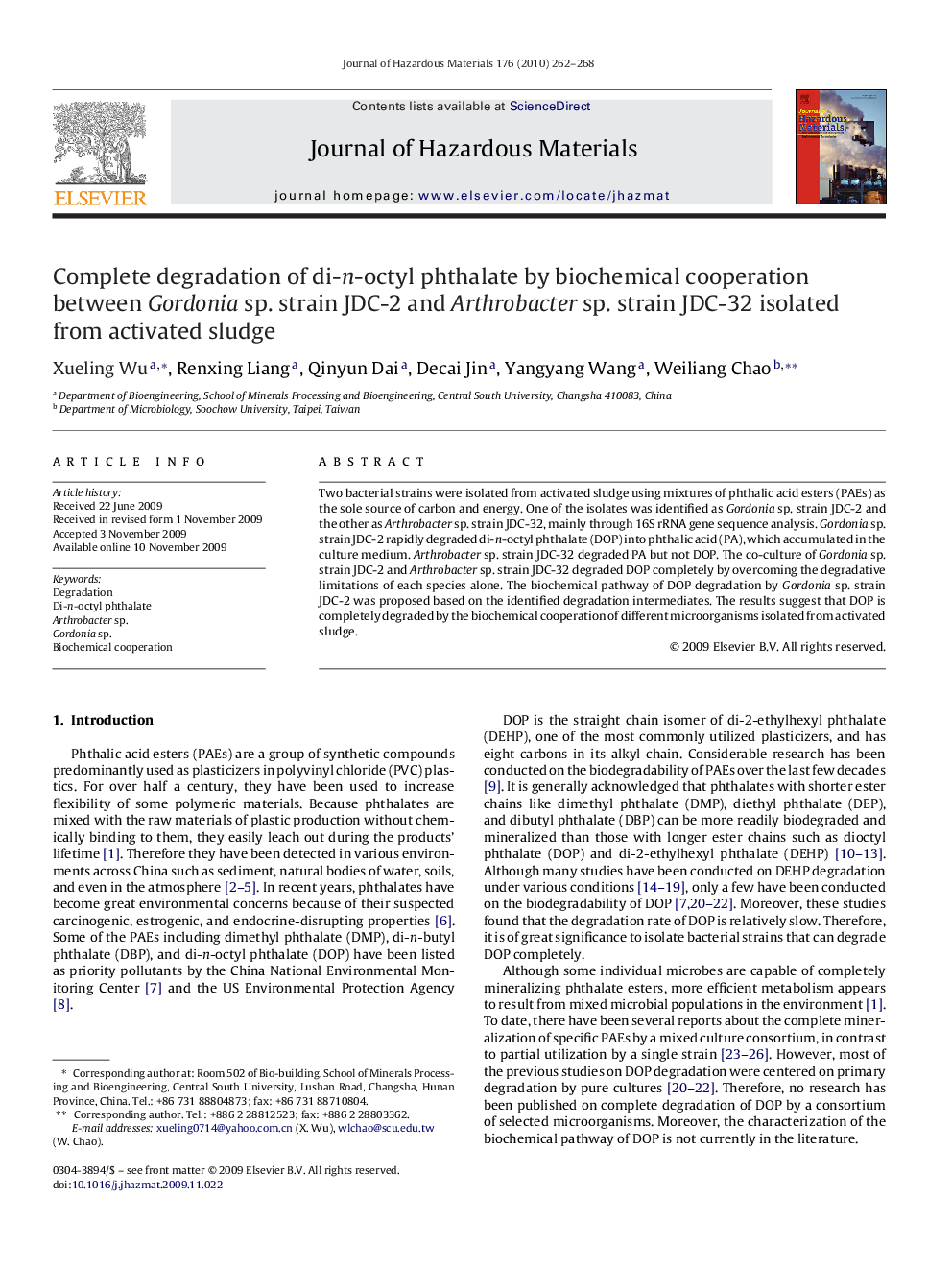| Article ID | Journal | Published Year | Pages | File Type |
|---|---|---|---|---|
| 580561 | Journal of Hazardous Materials | 2010 | 7 Pages |
Abstract
Two bacterial strains were isolated from activated sludge using mixtures of phthalic acid esters (PAEs) as the sole source of carbon and energy. One of the isolates was identified as Gordonia sp. strain JDC-2 and the other as Arthrobacter sp. strain JDC-32, mainly through 16S rRNA gene sequence analysis. Gordonia sp. strain JDC-2 rapidly degraded di-n-octyl phthalate (DOP) into phthalic acid (PA), which accumulated in the culture medium. Arthrobacter sp. strain JDC-32 degraded PA but not DOP. The co-culture of Gordonia sp. strain JDC-2 and Arthrobacter sp. strain JDC-32 degraded DOP completely by overcoming the degradative limitations of each species alone. The biochemical pathway of DOP degradation by Gordonia sp. strain JDC-2 was proposed based on the identified degradation intermediates. The results suggest that DOP is completely degraded by the biochemical cooperation of different microorganisms isolated from activated sludge.
Related Topics
Physical Sciences and Engineering
Chemical Engineering
Chemical Health and Safety
Authors
Xueling Wu, Renxing Liang, Qinyun Dai, Decai Jin, Yangyang Wang, Weiliang Chao,
